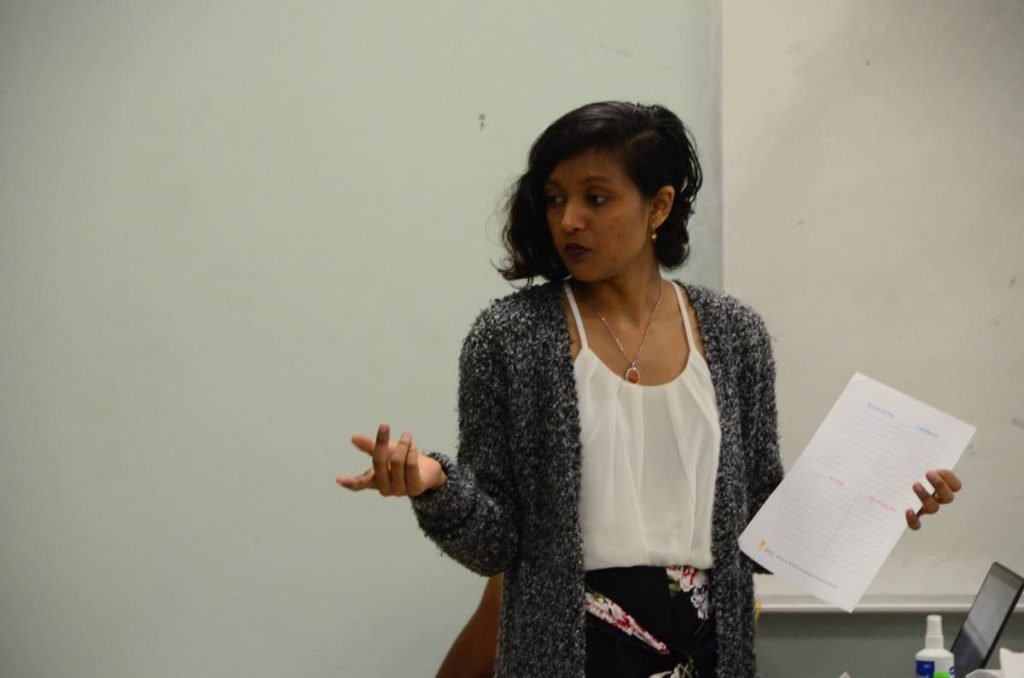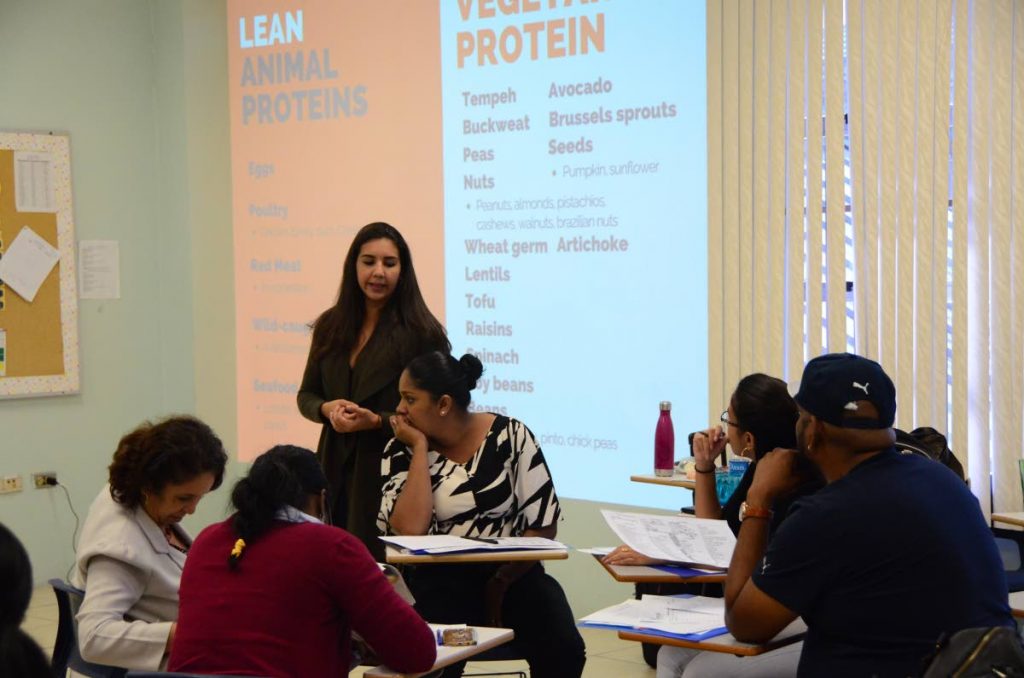Eating for PCOS

KIERAN ANDREW KHAN
Although Keir Roopnarine’s background is in molecular biology, she later discovered that her heart was really in the field of education. She co-founded Smart Aleks with Nkosi Smart in 2012 and later, in 2014, she delved deeper into her newfound passion for education by pursuing a MSc Education at the University of Pennsylvania. Smart Aleks has since carried out a number of workshops on topics that include sex education, cyber-bullying and gender-based violence. Her next workshop, Eating for PCOS, to be held next Sunday, is perhaps her most personal yet.
Roopnarine was diagnosed with PCOS or Polycystic Ovary Syndrome at the age of 18, a commonly diagnosed condition among women particularly from ages of 18 to 44, and for which there is no known cure. Partnering with Janelle Zakour, founder of Purple Carrot Nutrition, this workshop follows one held last month.

“When I was taken to the emergency room in 2006 with crippling pain, I was discharged and told that there was nothing wrong with me. A lot has changed since then but we definitely need to educate and inform people that this is a real medical issue, as much as heart disease or losing a limb. I was in so much pain that I simply could not move, that’s how bad it was,” she recalled.
Her best response to treating with PCOS came through her consultation with Zakour, a fitness fanatic and registered dietician. “I remember looking at the ultrasound, and one ovary just looked like a bunch of grapes. They told me that if I wasn’t able to control the problem with lifestyle, I would need surgery. At the time, I was studying to become a registered dietitian, and so I delved deep into research to figure out what I needed to do. I made a complete one-eighty, a total lifestyle change, and in so doing not only avoided surgery, but also lost weight – I was close to 200lbs when I was diagnosed.”
The Changes
According to Roopnarine, the diet was at first, jarring. “I removed meat from my diet, becoming a pescatarian (fish-only) in the process. At first I certainly felt like I got worse as the body takes some time to adjust. But quickly I was able to realise the benefits that can come from a change in diet. Painful periods, bad periods, are a staple of PCOS. I soon discovered that by making major but incremental dietary changes I was able to feel better overall. When my schedule would get too hectic, and my diet suffered, my body would reciprocate with painful periods. The takeaway from all of it is simply this: treating my body well allows my body to treat me well in turn.”
The first change that Zakour recommended to her (and recommends to all women trying to mitigate their symptoms with diet) was to cut out refined sugar. “Because women with PCOS experience insulin resistance, sugar should be the first thing to cut. I recommend a low sugar, plant-based diet that cut out dairy, refined grains and processed meats. All of the junk food, including Keir’s beloved ice cream, had to be traded in for fruits and more vegetables.”
The Workshop
“We divide the day into two.” Roopnarine explained, “The first half details the biology of PCOS. We talk about hormonal changes, what you experience, what to expect and the changes you can see and those you can feel. We also talk about the potential causes and though research in this area is ongoing there was a recent announcement that prenatal exposure to Anti-Mullerian Hormone may be a cause, but we have yet to be certain.
"In the second half, we delve into diet and show how the things you eat can make it better or worse, and indicate what you can change without forcing the point of a strict, enforced diet. The objective is that you enjoy your meals and your life but make adjustments to help you towards your personal desired outcomes.”
The workshop has larger goals too. “Support is very important too – your partner or the rest of the family needs to understand what you are dealing with. If you choose to tackle PCOS, know that you can’t do it alone. Lifestyle is very important too, and these people are essential elements in creating your lifestyle.”
At the end of the workshop next Sunday, participants will be included in the PCOS Support Group – Caribbean on Facebook. For those who participate in the workshop, Roopnarine notes that she and Zakour will continue to provide support afterwards, such as continued consultation on personal meal plans and updates on the latest news and research on PCOS.
For more information visit Smart Aleks Education Ltd on Facebook.

Comments
"Eating for PCOS"